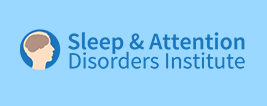Top Ten Conditions to Screen for Obstructive Sleep Apnea
These are the top ten conditions to screen for obstructive sleep apnea. Obstructive sleep apnea is a potentially dangerous disorder that can wreck hearts and cause deaths.

1. Obesity (BMI ≥30): About one-thirds of US adults have BMI of 30 or greater. About half of those with BMI ≥30 have obstructive sleep apnea
2. Congestive heart failure: About half of patients with congestive heart failure have sleep apnea. The sleep apnea may be either obstructive or central, or a combination of both.
3. Treatment resistant hypertension: Obstructive sleep apnea is common in patients with treatment resistant hypertension. These are patients whose blood pressure is not well controlled with medicines, or who are on three or more blood pressure medicines. Treating their sleep apnea may improve blood pressure control.
4. Impaired glucose tolerance: Obstructive sleep apnea worsens the ability to tolerate sugar (also called pre-diabetes). Treating the sleep apnea may improve this.
5. Type 2 diabetes: Obstructive sleep apnea worsens blood sugar control and insulin resistance in patients with type 2 diabetes. Treating the sleep apnea may improve the sugar control.
6. Nocturnal dysrhythmias: Obstructive sleep apnea may cause irregular heartbeat at night (during sleep). Treating sleep apnea may control the irregular heartbeat during sleep.
7. Stroke: About half of patients with a stroke have obstructive sleep apnea. Obstructive sleep apnea increases likelihood of strokes.
8. Pulmonary hypertension: Patients with pulmonary hypertension or increased blood pressure in the blood vessels of the lung are more likely to have obstructive sleep apnea. Treating sleep apnea may help.
9. Preoperative for bariatric surgery: Uncontrolled obstructive sleep apnea increases risk of bariatric surgery complications and impairs recovery.
10. Coronary artery disease: Patients with coronary artery disease (angina, heart attacks, and blocked heart arteries) often have obstructive sleep apnea. Treating the sleep apnea may improve outcome and decrease the risk of heart attacks.
An easy screening tool is the STOP-Bang.
To take the STOP-Bang, measure your height, weight and neck size. Then,
S = Snore loudly (can the snoring be heard across a closed door)?
T = Tired or sleepy during the day?
O = Observed episodes of stopping breathing in sleep?
P = Pressure (high blood pressure)?
B = BMI >35
A = Age >50 years
N = Neck size > 16”
G = Gender male?
If you answer yes to 3 or more of these 8 questions, you have a 50% chance of having obstructive sleep apnea.









